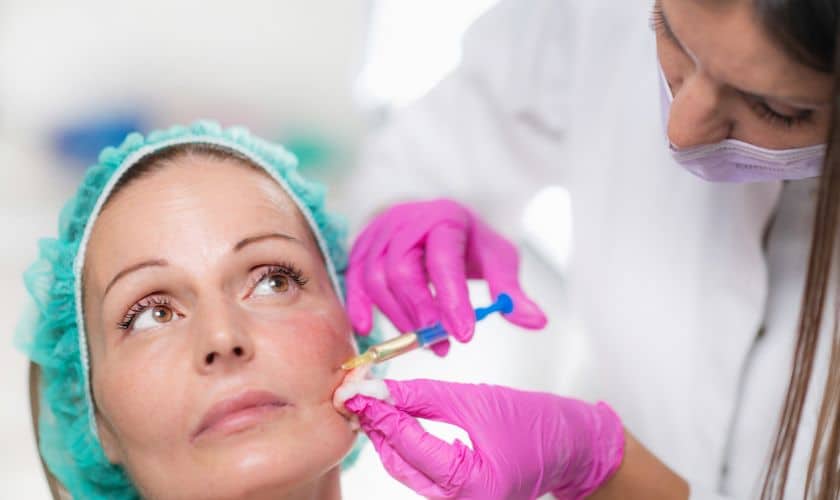You may have many questions if you’re considering a surgical dermatology procedure. Overall regardless if one chooses Surgery Dermatologic Procedures or not, understanding all steps involved during the entire process from the start through finish helps inform prospective candidates properly, allowing them to make the best decisions possible when determining if Surgery Dermatologic Procedures are the right fit for individual circumstances accordingly! This blog will outline surgical dermatology, its benefits, and what to expect from the procedure. We will also provide answers to some of the most commonly asked questions about surgical dermatology.
What Is Surgical Dermatology?
Surgical dermatology aims to improve skin appearance and remove or treat skin conditions or diseases. Surgical dermatology focuses on medical and cosmetic procedures for skin conditions. Some common methods include mole removal, wart removal, scar revision, skin biopsies, and cyst removal.
The Benefits Of Surgical Dermatology
The primary benefit of undergoing a surgical dermatological procedure is improved skin appearance. Your overall complexion can improve by removing moles or warts, smoothing out scars, or treating conditions like acne. In addition to enhancing appearances on the surface level, many procedures can also help improve underlying issues with your skin health. For example, mole removal can prevent further damage from occurring in the future due to sun exposure or other factors.
What To Expect From A Surgical Dermatologic Procedure
Before undergoing any surgical dermatologic procedure, you should consult your doctor to determine if it’s right for you and learn more about what you should expect throughout the process. After consulting with your doctor about your specific condition and goals for treatment, they will recommend which type of procedure would be best for you. Then before beginning any treatment or surgery itself, you should receive complete instructions on how to prepare for the surgery, such as avoiding certain foods before or following up with additional treatments post-procedure. Your doctor may also prescribe antibiotics before surgery to reduce the risk of infection after leaving their office.
During the surgery itself, there may be some mild discomfort. Still, most people only need anesthesia during these procedures if instructed by their doctor based on their individual needs and concerns regarding pain tolerance levels, etc. After surgery has been completed, usually, patients can return home shortly afterward. However, sometimes, depending on certain factors like size and location, they may need additional follow-up care at home, such as keeping bandages clean/dry depending on their doctor’s instructions following the procedure, etc. Additionally, while healing times vary based on individual healing responses, these minor surgeries typically heal within one to two weeks post-surgery. However, this timeline depends on certain healing rates, needs, etc. Most importantly, ensure you follow your doctor’s pre or post-operative instructions. Also, follow the medications prescribed before following any surgery to ensure proper healing times/reduce the risk of infection, etc. It’s also crucial if you have any questions or concerns during any stage of recovery that, you contact your physician.
Conclusion
There are numerous benefits associated with undergoing a surgical dermatologic procedure, including improved aesthetics in terms of physical appearance & underlying health improvements related directly to said conditions. Understanding what expectations should be set before starting any treatment plan helps ensure that patients are adequately prepared & informed throughout entire courses of treatments.
FAQs
1. What do surgical dermatologists do?
A: Surgical dermatologists tend to provide a wide range of diagnostic and therapeutic services for managing skin cancer.
2. Are dermatologists also surgeons?
A: Dermatologists are considered to be expert medical doctors and skin surgeons. They perceive the unique skills and experience required to offer the best care for your skin and hair.

